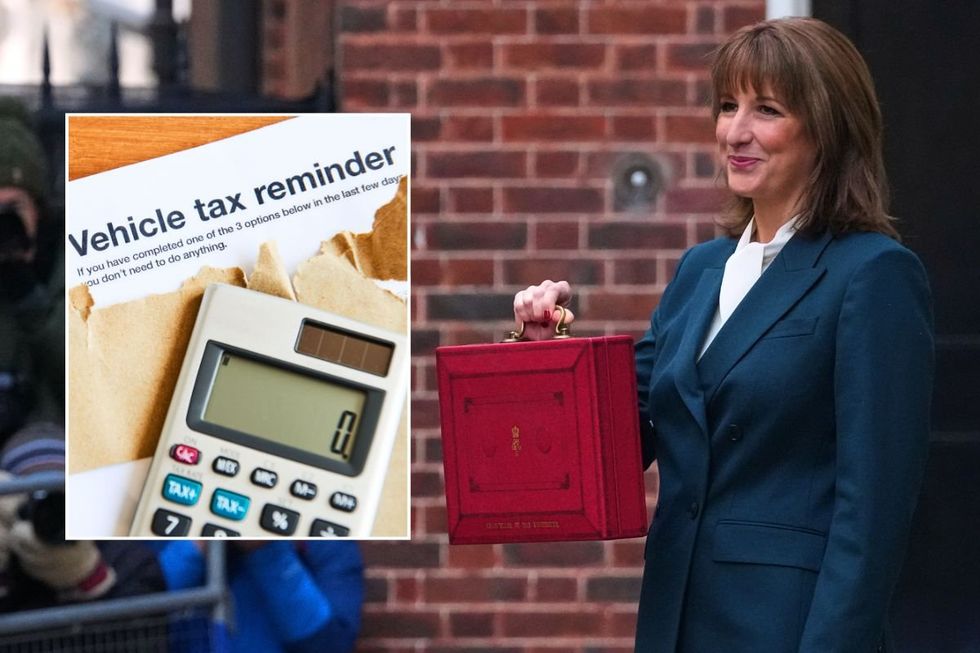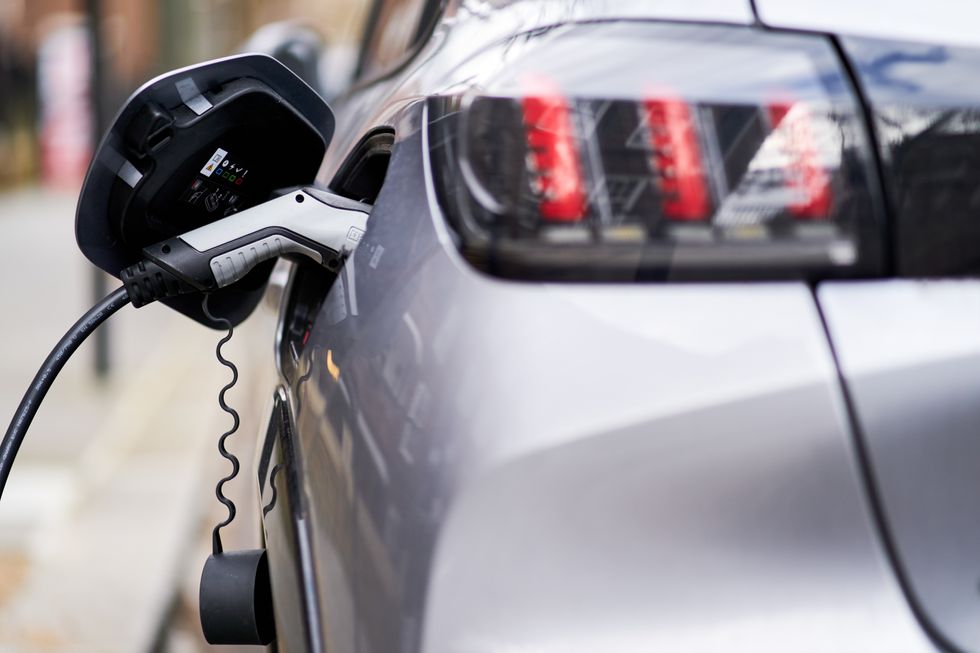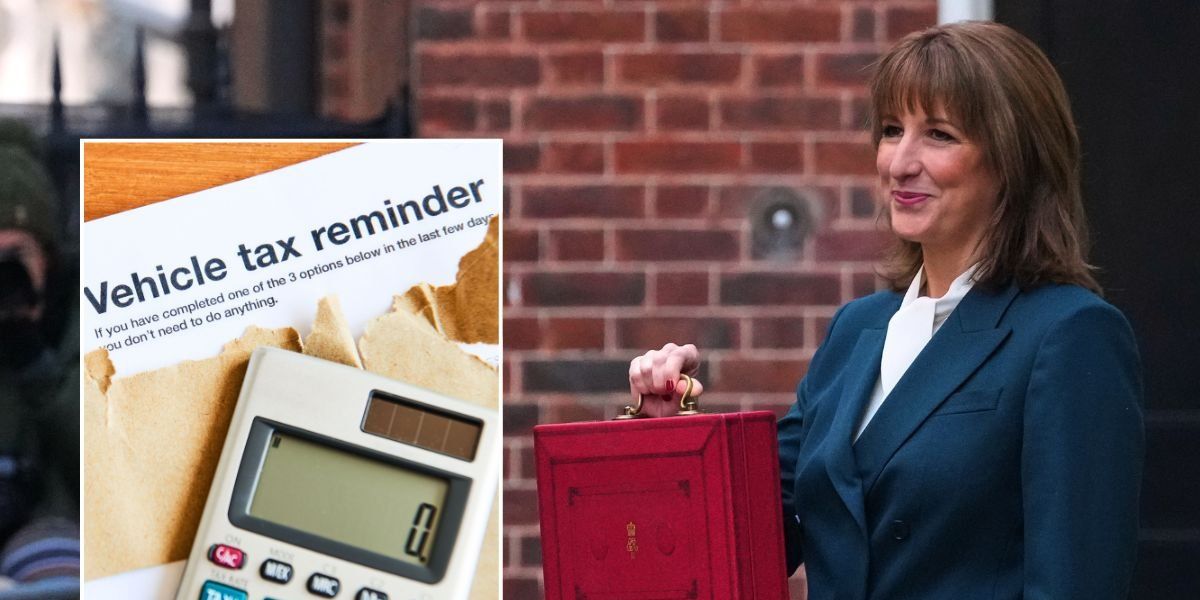WATCH: Chancellor of the Exchequer Rachel Reeves says drivers will be taxed under a pay-by-mile system
GB NEWS
By Felix Reeves,
Published: 26/11/2025
The decision to introduce new pay-per-mile car taxes has been met with disapproval from experts
Millions of drivers will face new pay-per-mile car tax changes in the coming years after Chancellor Rachel Reeves outlined an overhaul to motoring rules.
A "modest" self-reported pay-per-mile scheme has been confirmed by the Chancellor for owners of electric vehicles and plug-in hybrid models from 2028.
The "Electric Vehicle Excise Duty" rules will require electric and plug-in hybrid vehicles to pay every time they drive, in addition to their existing tax charges.
Rachel Reeves said it was "fair" for all motorists who use the road to pay for the upkeep of the road network when speaking at the despatch box earlier this afternoon.
The average electric car driver will pay around £240 a year, or £20 per month, when paying three pence per mile. Plug-in hybrid owners will be charged just 1.5p per mile.
The Budget confirmed that other vehicle types, including vans, buses, motorcycles, coaches and HGVs, would not be included in the scope of "eVED" at its introduction.
Labour said this was down to a comparatively lower number of electric options available on the market for these vehicle types.
The Economic and Fiscal Outlook report from the Office for Budget Responsibility outlined that the scheme would raise around £1.4billion for the Treasury by 2029-30.
READ MORE: Pay-per-mile car taxes confirmed for millions of drivers as Rachel Reeves unveils major changes

Chancellor Rachel Reeves confirmed the long-awaited pay-per-mile car taxes
|
GETTY/PA
It acknowledged that the Government's Zero Emission Vehicle mandate dictates that manufacturers must have a minimum percentage of sales come from electric vehicles, starting with 28 per cent this year and 80 per cent in 2030.
However, with the new pay-per-mile car taxes, the OBR estimates that the measure could result in a staggering 440,000 fewer electric car sales between now and 2030-31.
Around 130,000 of these will be offset by the expected increase in sales from other Budget measures, including the £1.3billion for the Electric Car Grant and £200million for EV charger installations.
Reaction to the new "mileage-based" charging scheme has been critical, especially from those in the EV industry, who warn that drivers could be seriously put off from investing in cleaner vehicles.
LATEST DEVELOPMENTS
John Lewis, CEO of char.gy, said taxation reform was "understandable", although he warned that introducing these changes too early "risks discouraging people who are on the fence about switching".
Similarly, Tanya Sinclair, CEO of Electric Vehicles UK, said: "The UK's motoring tax system needs fundamental, long-term reform.
"Change is inevitable as more drivers switch to electric, and no Government enjoys having to wholesale reform car taxation.
"But the key question is how. The new pay-per-mile scheme proposed today must be designed carefully, consulted on properly and explained transparently."

Electric and plug-in hybrid car owners will need to pay the new Electric Vehicle Excise Duty
|
PAIt is expected that the Government will consult on the new measures ahead of the expected rollout of the charges in April 2028.
The electric vehicle industry will have the opportunity to show the Government the best way that such a scheme could be introduced, with drivers also likely to be involved.
InstaVolt CEO Delvin Lane added: "We recognise that reforming how the UK funds its roads is necessary in the long term, and that pay-per-mile charging will eventually form part of that solution.
"However, introducing such a system at this stage risks putting off drivers who are considering making the switch to electric by layering on new costs."
Our Standards: The GB News Editorial Charter
The "Electric Vehicle Excise Duty" rules will require electric and plug-in hybrid vehicles to pay every time they drive, in addition to their existing tax charges.
Rachel Reeves said it was "fair" for all motorists who use the road to pay for the upkeep of the road network when speaking at the despatch box earlier this afternoon.
The average electric car driver will pay around £240 a year, or £20 per month, when paying three pence per mile. Plug-in hybrid owners will be charged just 1.5p per mile.
The Budget confirmed that other vehicle types, including vans, buses, motorcycles, coaches and HGVs, would not be included in the scope of "eVED" at its introduction.
Labour said this was down to a comparatively lower number of electric options available on the market for these vehicle types.
The Economic and Fiscal Outlook report from the Office for Budget Responsibility outlined that the scheme would raise around £1.4billion for the Treasury by 2029-30.
READ MORE: Pay-per-mile car taxes confirmed for millions of drivers as Rachel Reeves unveils major changes
Chancellor Rachel Reeves confirmed the long-awaited pay-per-mile car taxes
GETTY/PA
It acknowledged that the Government's Zero Emission Vehicle mandate dictates that manufacturers must have a minimum percentage of sales come from electric vehicles, starting with 28 per cent this year and 80 per cent in 2030.
However, with the new pay-per-mile car taxes, the OBR estimates that the measure could result in a staggering 440,000 fewer electric car sales between now and 2030-31.
Around 130,000 of these will be offset by the expected increase in sales from other Budget measures, including the £1.3billion for the Electric Car Grant and £200million for EV charger installations.
Reaction to the new "mileage-based" charging scheme has been critical, especially from those in the EV industry, who warn that drivers could be seriously put off from investing in cleaner vehicles.
John Lewis, CEO of char.gy, said taxation reform was "understandable", although he warned that introducing these changes too early "risks discouraging people who are on the fence about switching".
Similarly, Tanya Sinclair, CEO of Electric Vehicles UK, said: "The UK's motoring tax system needs fundamental, long-term reform.
"Change is inevitable as more drivers switch to electric, and no Government enjoys having to wholesale reform car taxation.
"But the key question is how. The new pay-per-mile scheme proposed today must be designed carefully, consulted on properly and explained transparently."
Electric and plug-in hybrid car owners will need to pay the new Electric Vehicle Excise Duty
It is expected that the Government will consult on the new measures ahead of the expected rollout of the charges in April 2028.
The electric vehicle industry will have the opportunity to show the Government the best way that such a scheme could be introduced, with drivers also likely to be involved.
InstaVolt CEO Delvin Lane added: "We recognise that reforming how the UK funds its roads is necessary in the long term, and that pay-per-mile charging will eventually form part of that solution.
"However, introducing such a system at this stage risks putting off drivers who are considering making the switch to electric by layering on new costs."
Our Standards: The GB News Editorial Charter











